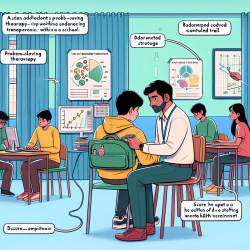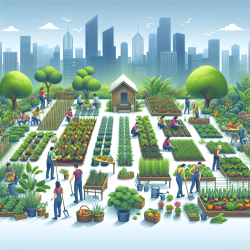Introduction
In the wake of the COVID-19 pandemic, food insecurity emerged as a pressing issue, disproportionately affecting Latino immigrant households in rural areas. The research article, "Rural Household Food Insecurity among Latino Immigrants during the COVID-19 Pandemic," sheds light on the challenges faced by these communities and offers insights into potential solutions. As practitioners, understanding these dynamics can enhance our ability to support and advocate for vulnerable populations.
Understanding the Challenges
The study highlights several barriers to food security, including reduced incomes, limited transportation, and the stigma associated with accessing government assistance. These challenges were exacerbated by the pandemic, which saw school closures and increased food consumption at home. For practitioners, recognizing these barriers is crucial in developing targeted interventions.
Key Resources and Coping Strategies
Despite the challenges, the research identifies key resources that helped mitigate food insecurity, such as the Supplemental Nutrition Assistance Program (SNAP), Pandemic Electronic Benefits Transfer (P-EBT), and charitable food programs. Practitioners can play a pivotal role in connecting families to these resources and advocating for policy changes that reduce access barriers.
Implementing Research Outcomes
Practitioners can implement several strategies based on the research findings:
- Advocacy for Policy Change: Work towards policies that streamline access to nutrition assistance programs and reduce the stigma associated with their use.
- Community Engagement: Partner with local organizations to create culturally relevant food distribution programs that consider the preferences and needs of Latino immigrant families.
- Education and Awareness: Educate families about available resources and how to access them, addressing fears related to legal status and public charge rules.
Encouraging Further Research
While the study provides valuable insights, there is a need for further research to explore long-term solutions and the sustainability of coping strategies. Practitioners are encouraged to engage in or support research initiatives that examine the broader impacts of food insecurity on health and well-being in rural Latino communities.
Conclusion
By understanding and addressing the unique challenges faced by Latino immigrants in rural areas, practitioners can contribute to reducing food insecurity and improving health outcomes. The research provides a foundation for informed advocacy and intervention, empowering practitioners to make a meaningful impact.
To read the original research paper, please follow this link: Rural Household Food Insecurity among Latino Immigrants during the COVID-19 Pandemic.










